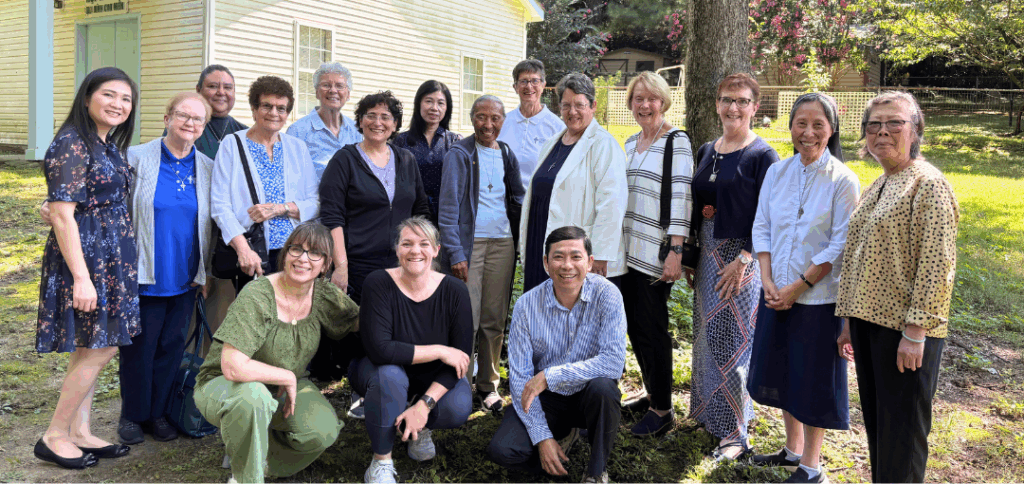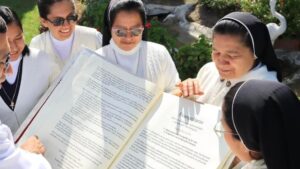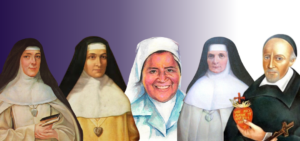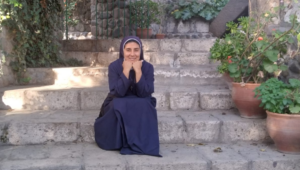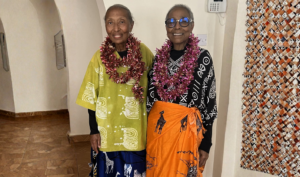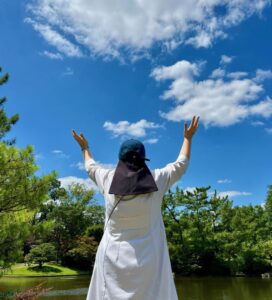An interview by Monique Tarabeh with Sr. Christine Truong, founder of Good Shepherd Services Atlanta – a non-profit organization devoted to providing outreach services to migrants and refugees with a special focus on those in need from diverse ethnic backgrounds, including those of Burmese, Chinese, Cambodian, Laotian, Thai, and Vietnamese origin.
Monique Tarabeh, RGS: Sr. Christine, your story is one of courage and faith. Can you take us back to the beginning? What was it like when you first arrived in the U.S., and how did this incredible ministry begin?
Sr. Christine Truong: I arrived in 1990 after twelve years of ministry in Hong Kong and Macau. I was sent to the Washington Province, to Silver Spring, Maryland. Everything was unfamiliar. I had to learn even the most basic things, like driving. I failed the test three times. It was frustrating, but it also helped me understand what new immigrants go through. I was struggling with just one thing, but they face dozens of obstacles all at once. At that time, I worked as a therapist at the YMCA in Silver Spring, and I saw firsthand how families were trying to adapt and survive.
After a year, I was missioned to Atlanta to join Sr. Mary Pauline Bilbrough. They asked if anyone would volunteer to go, but nobody came forward, so I said yes. We rented a small house, and I spent my days cooking, cleaning, and exploring the city. But deep down, I felt God was asking me to do more. So, I began walking through neighborhoods, visiting schools, and talking to people to see where the greatest needs were.
Monique: I can almost imagine you walking into those neighborhoods with open eyes and an open heart. What did you see that made you realize something had to be done?

Sr. Christine: I started volunteering at a school where children from Africa were living in foster care. Their parents weren’t here yet. These kids needed someone to listen to them, to help them with homework, to make sure they had food. Then I found a large group of Vietnamese families in an apartment complex. At first, there were just a few families, but soon I realized there were over sixty. Their children came home from school with nowhere to go. The parents would lock them out because they didn’t want their limited belongings to be damaged. So, the children just roamed around.
One day, I decided to sit outside under a tree in the middle of the apartment complex. I had no office, no desk, nothing. I brought my melodica and started playing songs from my childhood. The kids came and sat with me. I taught them games and music. That tree became our first classroom. It was so simple, but it was alive.
Monique: That image is so powerful, children gathered under a tree, singing with you. Was there a particular moment when you knew this was the start of something bigger?
Sr. Christine: Yes. One afternoon, a man drove by, heard the kids singing, and stopped. He came up to me and asked, “Sister, what are you doing here?” I told him, “I’m not really sure. I just want the kids to be safe and happy.” He asked me what I needed, and I told him the children were hungry. From that day, every Monday for six weeks, he left boxes of fruit—bananas, apples, oranges—before I arrived. I never saw him again. I don’t know his name, but I always think of him as an angel who helped us take our first steps.
Monique: That’s beautiful. It seems that what began under a tree grew into something much larger. How did it evolve into what we know today as Good Shepherd Services Atlanta?
Sr. Christine: After that, I kept visiting families every day. I traveled with just a paper map, knocking on doors, listening to people’s stories. In two years, I visited over 1,000 homes. Along the way, churches started supporting us, Catholic, Episcopal, and many other denominations. I also volunteered with Save the Children, World Relief, Lutheran Ministries, and the International Rescue Committee. I noticed that most agencies helped refugees for only six months, and then the families were left to fend for themselves. Many of the Vietnamese I met were Amerasians who had little education and no English skills. No one was reaching them.

By 1993, our little group of kids under the tree had grown to more than 50. We needed a real space. I found a small house, and that became our center. I wrote the paperwork myself to register Good Shepherd Services as a nonprofit. I didn’t know much, but I learned along the way. That house is still where we serve today.
Monique: Over time, how did your work expand? What changed as you grew?

Sr. Christine: We started with tutoring and after-school programs, but the needs were endless. We added job search assistance, immigration help, translation, summer camps, and social services. In 1996, we began receiving federal funding. But when the funding was cut in 2001, I had to reinvent everything. I became certified to teach DUI classes and started programs for substance abuse, domestic violence, and anger management. At our peak, we had twelve staff members and three centers across different counties. Today we have six staff members and one main center, but we still serve 4,000 to 5,000 people each year.
Monique: That is remarkable, Sr. Christine. What values keep your mission alive today, after all these years?
Sr. Christine: Kindness. Presence. We serve people from every background. Our staff are Catholic, Buddhist, Baptist, and Jewish. I tell them, people don’t care who we are or what title we have. They care about how we treat them. We may not always solve their problems, but we can give them something—a smile, a moment of peace, a feeling that they are seen and respected. That is how we show the heart of the Good Shepherd.
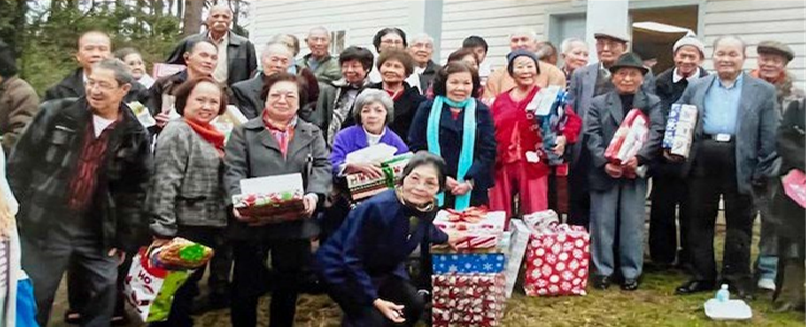
Monique: Do you have a story that always makes you smile when you think of those early years?
Sr. Christine: I always remember my first Thanksgiving here. A local parish gave us three frozen turkeys and all the fixings. I cooked one turkey for myself and Sr. Pauline, but I brought the other two to the Vietnamese families. They looked at me and laughed. “Sister, what do we do with this big bird?” They had never seen such a thing. On Thanksgiving Day, we all gathered. They laid newspapers on the floor, and each family brought their dish. One made turkey curry. Another barbecued it. We sat on the floor, ate together, and laughed. It was not a traditional Thanksgiving, but it was perfect.
Monique: I love that image, Thanksgiving becoming a blend of cultures and joy. As you look ahead, what would you like people to pray for?
Sr. Christine: Pray for us to keep loving people as they are, not as we wish them to be. Pray that we remain humble and strong enough to be instruments of peace. And pray for all the immigrants and refugees, that they find hope and support in this country. That is what I ask.
Monique: Sr. Christine, the story of Good Shepherd Services in Atlanta is deeply inspiring. Thank you for letting me walk through it with you today.
To learn more or support this ministry, visit: https://www.goodshepherdatl.org
